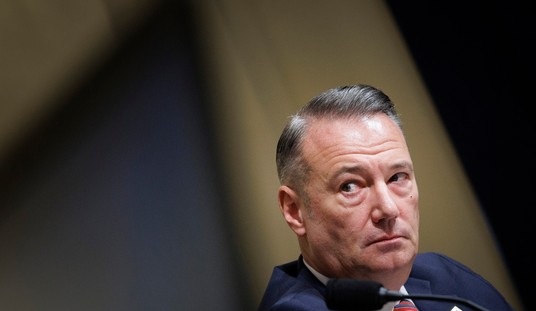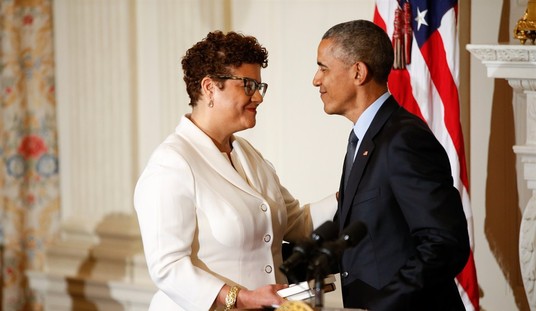U.S. Attorney General Eric Holder said on Friday that he expects the Justice Department’s investigation into the shooting death of unarmed black teenager Michael Brown by a white police officer in Ferguson, Missouri, to be complete by the time he leaves office…
Holder also said he was “exasperated” to see leaks earlier this week from the grand jury reviewing the case locally. The leaked information indicated that Darren Wilson, the officer who shot Brown, was acting in self-defense.
“It appears that people are somehow trying to shape public opinion,” Holder said.
Benjamin Crump, the attorney for Brown’s parents, told The Associated Press on Saturday that the officer’s account of what happened was “self-serving.”
“The officer is going to say whatever he has to say to try to justify killing an unarmed teenager,” Crump said. “And certainly, his statement should not be taken above independent eye witnesses who are completely unbiased when he has every reason to be biased.”
Crump also said that because there were reports that Michael Brown was shot while he ran away, it “doesn’t matter” what happened in the car beforehand.
“He was definitely not in fear of threat when Michael Brown was running away from him,” Crump said.
Protesters seeking “justice” in the officer-involved shooting of 18-year-old Michael Brown marched inside the St. Louis County Police Department on Wednesday afternoon.
“If we don’t get justice here, we’ll get it on the streets,” one activist yelled, according to St. Louis Post-Dispatch Reporter Steve Giegerich.
There was really nothing new about the Times’ story—Wilson has maintained since day one that Brown was reaching for the officer’s gun, which led to a struggle ultimately ending in the teenager’s death. Now, though, evidence seen only by a St. Louis County grand jury has been made available for the world, including the residents of Ferguson.
“I believe that when people have received (the Times) article and see what’s going on it will infuriate people and set us back,” Lee said. “No matter what happened in (Wilson’s) car, Michael Brown’s hands were up. No matter if he beat the crap out of Officer Wilson, his hands were up—a universal sign of surrendering.”…
“If there’s a non-indictment I think you’ll see an immediate uproar,” Lee said. “I don’t think people have seen the amount of unrest and anger that will come if there’s a non-indictment.”
Osagyefo Uhuru Sekou, a Boston-based author and pastor who grew up in St. Louis, has been participating in the protests. He has been arrested twice.
As he walks by the burnt-out convenience store just a few blocks from where Brown died, he says, “Democracy is on fire, and we’re called to be firemen.”
Asked to elaborate — is he all right with the looting and burning? — he says he’d prefer that the protests unfold without the violence and destruction.
“I mean, it is not my preference, no,” he said. “I’m more concerned about the conditions that produced this — the simmering poverty, the simmering oppression, the simmering alienation, the existential crises that black youth feel in America. I am far more concerned about the condition that produced the burning of buildings.”
What happens next in Ferguson may well be, to quote Al Sharpton, a “defining moment,” though not in the way he, other progressives, and Ferguson protesters mean. To their minds, the case required little scrutiny: Michael Brown was a new Emmett Till; Ferguson, a new Selma. But that determination was made well in advance of a careful sifting of available evidence — evidence that shows that the events of August 9 do not lend themselves to a convenient racial parable. If the grand jury, having heard and weighed the available evidence, believes that Darren Wilson is not criminally culpable for his actions, they should not indict him. The judicial system cannot be used to assuage imagined racial grievances.
Michael Brown’s death, unfortunate though it was, is not part of an ongoing civil-rights struggle. The racial antipathies that animated the South in the 1960s are largely vanished — an extraordinary accomplishment that is rarely, if ever, acknowledged by those who point to present-day bigotry. Moreover, the racist justice system that some Ferguson residents decry is nowhere to be seen. The results of a police investigation, closely observed by a suspicious community and national media, have been brought before a grand jury (also under the scrutiny of a nation), which has, by all accounts, slowly and deliberately considered the available evidence. There is no indication that the system has worked otherwise than normally.
Unfortunately, racial demagoguery, too, is pretty normal in America.
[L]et me get this straight: Two and a half months after the shooting and the protests and the rioting, we are just now starting to find out what really happened? And the only reason we’re finding this out now is that it was leaked?…
People who believe the original narrative that was repeated ad nauseam back in August might not trust the newly-revealed evidence—or (and this speaks to the media’s culpability) might not even learn about the recent findings, which haven’t garnered nearly as much attention as the story was getting back in August and September. And how will the people who still believe Brown was murdered in cold blood react if Wilson gets off scot-free?
Keep in mind that retroactive facts and evidence arguably matter less than first impressions—especially if we don’t vigorously push back on false narratives. And so, as Jonah Goldberg notes, the story we were originally told about Brown’s shooting “will live on for decades to come. That’s in no small part because many decent Americans have locked themselves into the belief that the heroic chapter of the civil-rights movement can never end. The story must go on so they can continue to cast themselves as the heroes.”
To be sure, racist-white-cop-shoots-unarmed-black-youth is an old story in America, going back over a century. That history explains African-American sensitivity when interracial police incidents occur and perhaps it explains the media’s knee-jerk reaction to Ferguson.
But police departments have changed dramatically in recent decades. Virtually all departments make special efforts to hire African-American officers and work with local black leaders to improve community relations.
Moreover, shootings of blacks by police — indeed, all shootings by police — have declined dramatically since 1995. In New York City, for instance, shots fired by NYPD officers from 1995 to 2010 dropped 80 percent.
Had they been more responsible, reporters and editors would have treated the Missouri shooting incident as an event to be explained, especially since everyone knew that young Ferguson blacks were seething and ready to riot.
The national media, especially cable news networks and enterprising liberal news websites, occupied Ferguson for days on end, looking for and finding evidence that the police were out of control, that racism was everywhere, and that Ferguson resembled forsaken third world cities where footage of confrontations between police and protestors was the norm.
Whenever a witness spoke up to cast doubt on the official narrative — that the shooting of Brown was simply a homicide committed by the state — the wisdom collective would give one of two responses. First, they’d say that the witness was wrong. If the witness refused to give his or her name, then his or her information was totally worthless. Had to be. Then they’d say, even if the witness was right, the underlying facts of the case were the same. Even if Brown had somehow gotten into an actual confrontation with the police, the shooting still represented something far more insidious than the sum of its parts…
The media made Ferguson a national story. The media did so based on a particular set of facts and assumptions that they then broadcast to viewers who (because we are so instinctively partisan) were inclined to reject, or accept, the fact of a bad police shooting based solely on what they were told. Now, some reporters and analysts will try to skew the evidence rather than admit that they got it wrong. Many others will say that because there’s still so much we don’t know and haven’t read about the incident, it’s premature to conclude anything. Others will say that, regardless of whether Brown struggled for Wilson’s gun, firing nine shots at someone is never justified. Others will show pictures of tanks and tear gas, basically telling viewers that the reaction to the shooting by police was the real story all along, even more so than racism. The victim? Michael Brown? Eh.
The narrative that has been presented about Ferguson — that it’s about poor black folks rising up against the evil white oppressor — may be sexy and make for good TV, but that’s not the reality on the ground…
It’s really the story of regular, taxpaying, law-abiding, lawn-mowing, pumpkin-carving, churchgoing Midwestern folks where the only gunshots you hear are from kids playing Xbox. And they’re wondering why the first killing in town all year was a cop firing 11 shots in a residential neighborhood into a kid with no record of serious crimes. While the new leaks reveal Wilson’s claims that he was “defending himself,” this doesn’t add up for residents.
The fact that the Ferguson Police didn’t release a police report until weeks after the incident, which was full of redactions, and under pressure from the Department of Justice leaves a bad taste in everyone’s mouth. This is not a rabble-rousing community. There’s no history of mass civil action, as a journalist friend of mine from nearby Florissant told me, “the civil rights movement skipped St. Louis.”
Had the police been forthcoming from day one, everyone would have been back to their regular lives within a week. However, when you ignore people, even regular folks, and treat them like collective criminals in their own community, that’s when people get angry.
For many African Americans, this is shaping up to be the Ferguson Election.
Around the country, black voters are being mobilized to vote in the 2014 midterms with the argument that the death of Michael Brown resulted, in part, from lack of black civic participation. While the population of Ferguson is nearly 70 percent African American, only 6 percent cast a ballot in the last municipal elections. This led to a majority-black city where the mayor and five of six city councilpersons are white—and a police force that many see as rejecting standards of community policing and ignoring concerns of black residents. As the argument goes, Michael Brown may have been felled by a bullet in August, but the context around his death was created at the ballot box the year before…
Not all African Americans leaders are encouraging black voter turnout, however, even in the shadow of Ferguson. Journalist and pundit Tavis Smiley said in a recent interview with ABC News that “if you’re black or brown, other than helping to save the Democrats’ hide,” there are no good reasons to turn out to vote this November. Smiley claimed that Democratic appeals to black voters are more about election year politics than a genuine desire to change policies.
Via RCP.








Join the conversation as a VIP Member